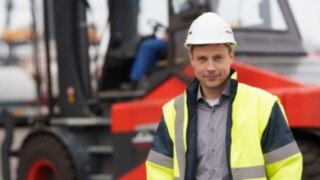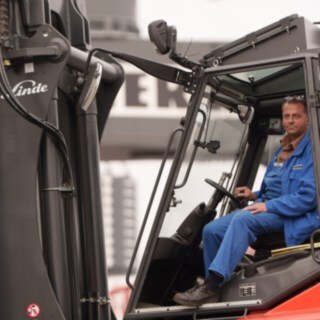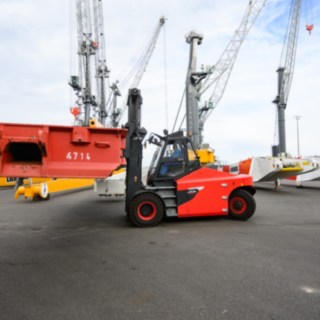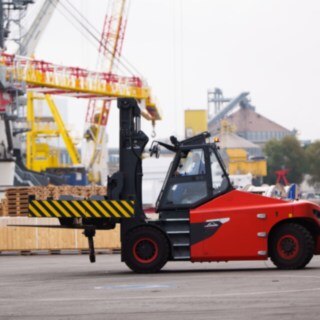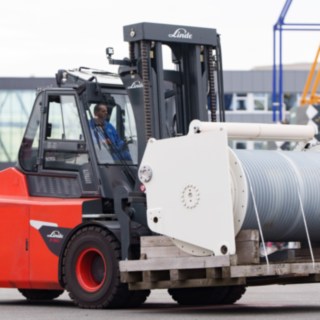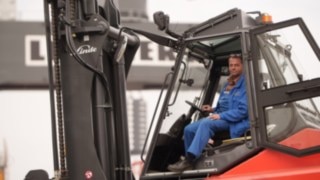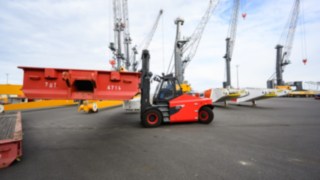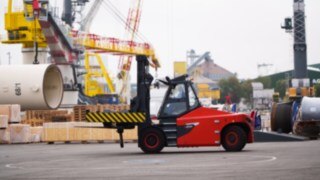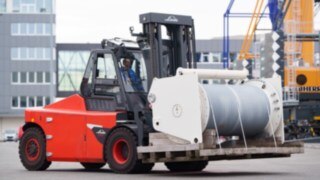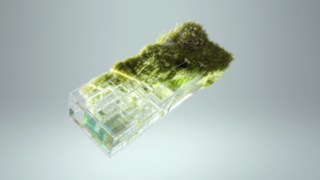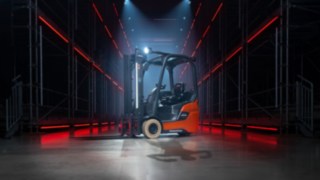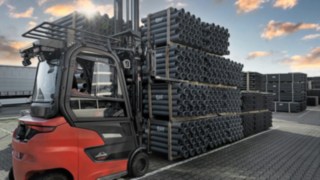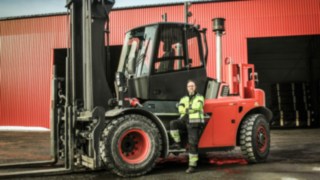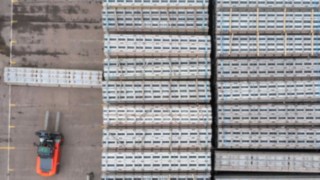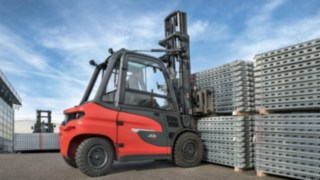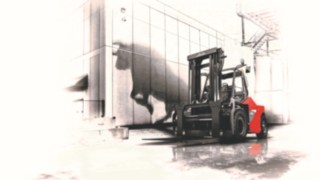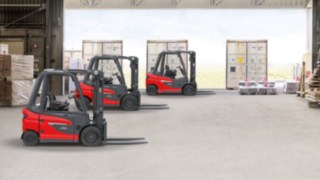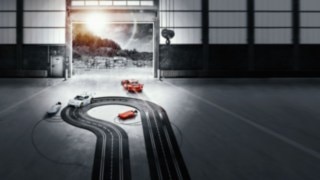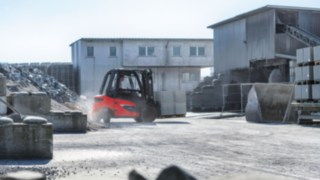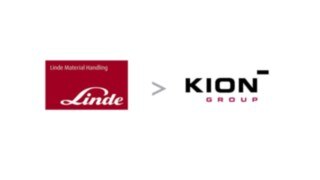Linde E160 impresses during field test at Liebherr
Unbeatable handling and zero emissions guaranteed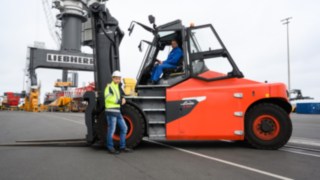
E-mobility is becoming ever more important and is set to help reduce noise emissions in production halls as well as make production altogether more sustainable. As part of their efforts to electrify the entire forklift fleet, the specialists at Liebherr soon realised that the largest Linde model in use, the H160, should also be replaced with an electric counterpart.
The use of a single E160 at Liebherr prevents 16.5 metric tonnes of CO2 from entering the atmosphere every year. So, without further ado, the new forklift trucks were tested in real-life conditions within an industrial environment over the course of several weeks. “The field test at our plant had two phases”, reports Logistics Planner René Drägert. During the first phase, a model with a classic lead-acid battery was given the chance to prove its suitability.
“We used the E160 over a double shift. This did not necessarily mean that the truck was on the go the whole time, but even after over 10 hours of use the lead-acid batteries were still not completely flat. In this respect, the model fully met our requirements”, says Drägert. They then tested a version of the truck with a lithium-ion battery.
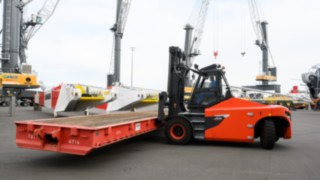
The Liebherr team do not want to give the E160 back
Transport Team Leader René Splettstößer is also full of praise for the lithium-ion powered E160: “We managed to use the truck from 5 a.m. to 10 p.m. on a single battery charge and were able to use the time afterwards to charge it up fully again.” What’s more, the E160 is significantly quieter in comparison to its diesel-powered counterpart.
Even more important, though, is the fact that it does not produce any soot or odour emissions during use, as Splettstößer goes on to report: “Our colleagues in the production hall quickly noticed that exhaust emissions were no longer being produced when the trucks were in use, which they found extremely positive.”
The Team Leader describes his employee's feedback as follows: “Many people are instinctively put off when it comes to the topic of e-mobility, but after operating one for three or four days they soon find that they don’t want to give the forklift back.”
This impression is backed up by forklift operator Gerd Prief, who was able to put the E160 through its paces over the course of several weeks: “The operator’s cabin is really well laid out and the overall operating experience is very pleasant. In terms of technology, everything is very responsive when it comes to lifting and lowering.” At the end of the test he gave his verdict accordingly: “I would be delighted if the E160 were to become the new standard here at our plant.”
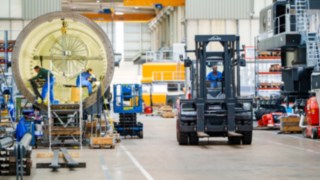
Liebherr-MCCtec Rostock GmbH
Liebherr is one of the leading manufacturers of maritime handling technology. Their portfolio includes mobile port cranes, shipyard cranes and offshore cranes capable of carrying loads of up to 5000 metric tonnes. The Rostock site has been producing cranes right at the quayside since 2005. And ever since, the crane manufacturer has trusted in Linde’s forklift trucks to supply parts to its production facility, spread across the sprawling 450,000-square metre site.
